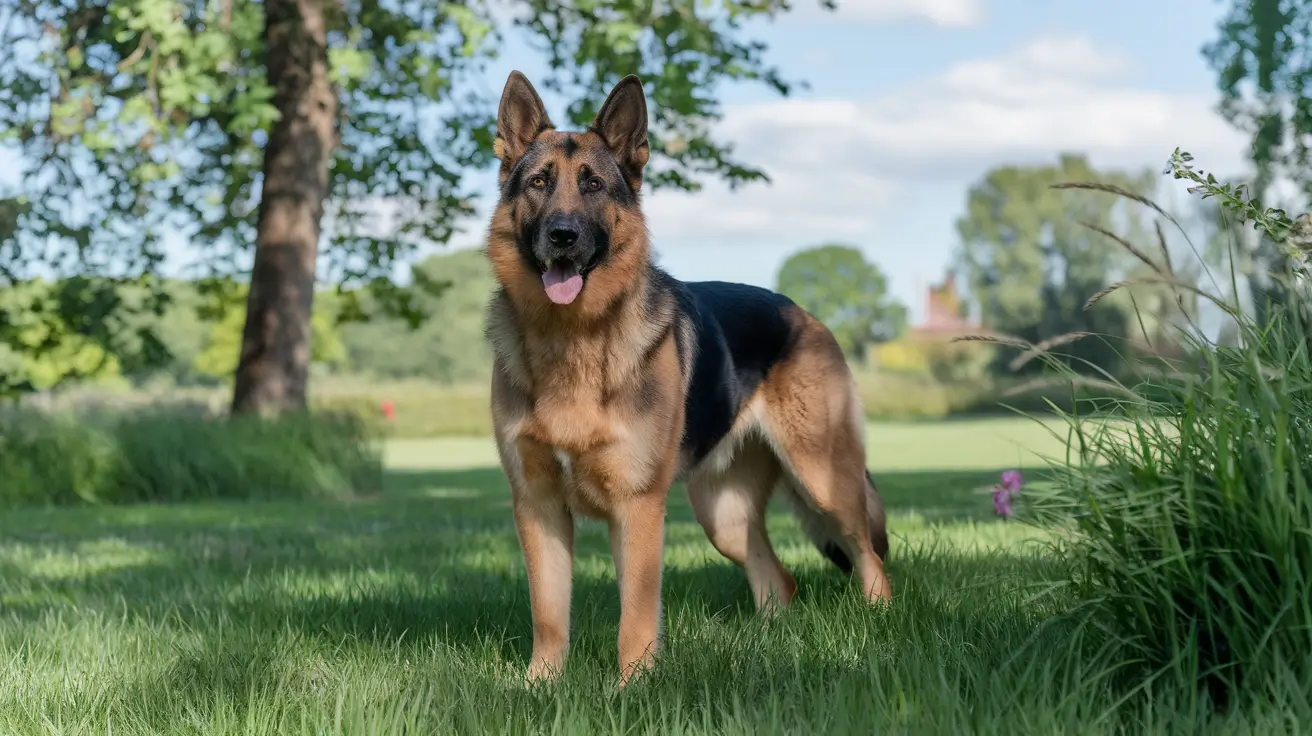Introduction to the German Shepherd Breed
German Shepherds are renowned for their intelligence, loyalty, and strength, making them one of the most popular dog breeds in the United States. Their keen sense of duty and bravery have long made them ideal candidates for roles in the military and police forces, where they excel in tasks such as patrolling, bomb detection, and search and rescue missions. Beyond their working capabilities, German Shepherds are cherished family companions, known for their devotion and protective nature.
Physical Characteristics and Exercise Needs
A German Shepherd is a large, muscular dog with an average weight between 50 and 90 pounds and a height of 22 to 26 inches. Their agility and strength require regular exercise to maintain their physical and mental health. German Shepherds have a double coat that sheds heavily, particularly during two annual shedding periods. Regular grooming is essential to manage their shedding and keep their coat healthy. These high-energy dogs thrive on activities that challenge both their body and mind, such as agility training, herding, and tracking exercises.
Health Concerns and Preventative Care
German Shepherds have a lifespan of 7 to 10 years and are prone to several health issues, including degenerative myelopathy, hip and elbow dysplasia, and various types of cancer. Regular veterinary check-ups and preventative measures, such as pet insurance and genetic screening, are crucial in managing these conditions. Gastric Dilatation-Volvulus (GDV), a life-threatening condition common in large breeds, requires immediate medical attention and can be prevented through procedures like gastropexy.
Grooming and Maintenance
The German Shepherd's double coat requires consistent grooming to manage shedding. Routine brushing helps control loose hairs, while bathing should be limited to prevent stripping the coat of its natural oils. Regular nail trims are also necessary to prevent overgrown nails from causing discomfort or injury. Grooming is a vital part of maintaining a German Shepherd’s health and appearance, ensuring they remain comfortable and clean.
Nutrition and Feeding Guidelines
Providing a balanced, age-appropriate diet is essential for a German Shepherd’s health. Diets should be approved by the Association of American Feed Control Officials (AAFCO) to ensure nutritional adequacy. Feeding smaller, frequent meals can help prevent bloat and GDV, a common issue in this breed. Consultation with a veterinarian can help determine the appropriate feeding schedule and portion sizes, as well as the right time to transition from puppy to adult food.
Behavioral Traits and Training Techniques
German Shepherds are known for their strong loyalty and protective instincts, often forming deep bonds with their owners. Early socialization and consistent training using positive reinforcement are crucial for harnessing their intelligence and energy. These dogs respond well to reward-based training methods that include treats and toys, which help solidify the human-animal bond. Proper training and socialization ensure that German Shepherds grow into well-mannered and confident companions.
Specific Health Conditions and Management
Certain health conditions, such as allergies, heart disease, and exocrine pancreatic insufficiency, require specific management strategies. Allergies may manifest as itchy skin or digestive issues, necessitating thorough diagnostic testing. Heart disease, including dilated cardiomyopathy, requires regular heart evaluations and medication management. Exocrine pancreatic insufficiency, a digestive disorder, can be managed with lifelong enzyme supplements to aid in digestion.
Considerations for Potential Owners
Before bringing a German Shepherd into your home, it is important to consider the time commitment and lifestyle compatibility. These dogs require ongoing training, exercise, and grooming to ensure their well-being. Prospective owners should be prepared for the responsibilities that come with owning a German Shepherd, including providing ample mental and physical stimulation to prevent undesirable behaviors.
Frequently Asked Questions
Common questions about German Shepherds often pertain to their lifespan, shedding habits, and suitability as family pets. With proper care, these dogs can live between 7 to 10 years. They shed heavily, requiring regular grooming. Despite their shedding, German Shepherds make excellent family pets due to their loyalty and protective nature, provided they receive proper training and socialization.
Conclusion and Final Thoughts
Owning a German Shepherd is a rewarding experience that comes with significant responsibilities. These intelligent and loyal dogs require dedicated care, including regular exercise, grooming, and health management. With the right attention and commitment, German Shepherds thrive as devoted companions, enriching the lives of their owners with their unique qualities and unwavering loyalty.






